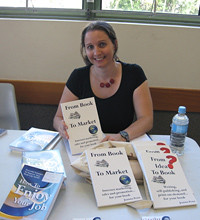Time and Page Constraints
How many times have we heard the comment, “The book was a lot better?” Well, there are some good reasons for that. Writing for the movie industry takes a different set of writing tools and constraints. The word “constraints” is the primary key.
The rule of thumb for a screenplay is that one page is equal to one minute of movie time. Most movies fall into time lengths of 90 to 250 minutes with 120 minutes being the standard target length. Now, compare that constraint to the length of most novels, which range from 250 to 750 pages and even longer for some. How does one cut the novel length down to the screenplay time constraints and still communicate the essence of the novel? I will answer that question, but first here are some other considerations.
Different Writing Style
Screenplays are written in third person and present tense. If you think you can just change your novel into those style requirements, you will find that is a laborious task at best. I have written two screenplays based on novels. It is a time consuming task. It is so easy to miss changing all the verb forms and tense forms in almost every sentence. It really takes attention to detail. You have a choice of whether to make all those changes to the whole book and then determine what will be cut or remain or vice versa. I feel in the long run it’s safer to make the style changes first and then make the cuts, but you may prefer to do it the other way—whatever works best for you.
Critically Important Considerations
Movies are primarily a visual media. This makes showing rather than telling absolutely essential. Dialog must be kept short—no long expository speeches or explanations. Action is king. There should be no off-camera explanations by a 3rd party narrator. Conditions, settings, and motives must be shown by what the actors do and say. Back story should be kept to a minimum. A very brief visual flashback might be appropriate if it is essential to the story’s development. For example: a novel might explain the reason why a woman develops a hatred for all men with page after page of action discussing sexual abuse by a father or brother. In the movie version, there might be a 20 to 30 second flashback showing an abuse scene to explain the reason why the woman hates men. Showing is hyper-critical. Telling takes too long and is boring.
Cutting Down the Novel
The primary guidelines or criteria for making cuts are:
- If something doesn’t move the storyline along, get rid of it
- Be brutal about which characters are essential and which are not
- Dialog should be kept short
- Action must be the primary communication means used by the writer
- Remember, keep the screenplay as visual as possible.
When I turned my first mystery into a screen play, I actually had to totally eliminate or reduce a few nonessential characters. I saw the same thing happen in the movie version of Stephanie Myers second novel. The wheelchair-bound Indian father of one of the werewolf boys had many pages of dialog in the book and numerous mentions of him by other characters. In the movie he got about 30 seconds of movie time. If a character or scene is not essential to the story, get out the editorial knife.
Remember showing vs telling is even more critical in a screenplay than in the book version. Keep it short but powerful.
The Bottom Line
Movies are far more expensive to produce than novels. Whereas a major publisher may invest several tens to hundreds of thousands of dollars in a book, A movie production will require tens of millions of dollars. Unless it’s a major studio with very deep pockets, the production company often will have to find major investors willing to take a chance on the movie’s likelihood of returning the investment plus a sizable profit. A small, independent production company has accepted four of my screenplays; however, they have not been able to find enough willing investors to fund the movies. Being accepted, even if there has been no contract or upfront money, is gratifying, but it won’t buy any groceries. Most production companies prefer to use materials by previously successful screenwriters to minimize the risk to their bottom line. That is why it is so difficult to break into the business. Another factor that raises a barrier against writers is age. Many production companies believe only young writers can connect and communicate with younger target audiences—a major ageism factor.
Screenplay Formats
There is a very strict and detailed set of formatting requirements for screenplays. Don’t even try to write your screenplay in Word! There are too many possibilities for format errors. Use an established screenplay formatting software package. I have used several in the past and have found “Final Draft” to be my preferred program. Dramatica is another good company.
Final Consideration
Still, despite the barriers, cutting a novel down to screenplay length is definitely a worthwhile endeavor. You will learn so much about your writing and your work from this translation process that it becomes a wonderful self-education exercise. If nothing else, you will gain an appreciation for the screenwriters and their process. It will also provide you with new eyes when watching movies, knowing what goes into producing a screenplay. Remember, most movies are built upon screenplay that have ultimately been produced by the the consensus of committees. That is another reason many why so many movies don’t live up to their novels. Still, it is a worthy exercise to try just to improve your writing game.
This is a cross-posting from Bob Spear‘s Book Trends blog.

 Let’s begin with the bleeding obvious—alas so often neglected!—and progress toward the more forgivable omissions:
Let’s begin with the bleeding obvious—alas so often neglected!—and progress toward the more forgivable omissions:



